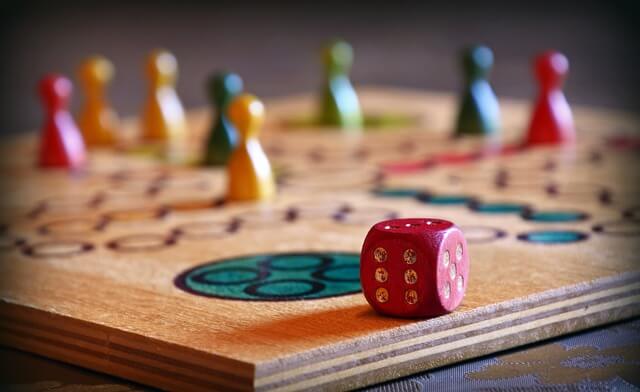
Board games have been a staple of human entertainment and socializing for millennia. From ancient civilizations to the present day, board games have evolved and adapted to suit the changing needs and technology of their time. In recent years, the digital age has brought about a new era of board game innovation and accessibility. In this speech about yourself article, we will explore the history and evolution of board games from their analog origins to their current digital form.
The Origins of Board Games
The history of board games dates back to ancient civilizations, and many of the games played today can be traced back to their origins. In ancient Egypt, the game of Senet was a popular pastime, while the game of Go was played in ancient China. The ancient Romans enjoyed the game of Ludus Latrunculorum, while the Greeks played Petteia and Pessoi. These games varied in rules, board design, and complexity but were all enjoyed for their entertainment and strategic gameplay.
Ancient Civilizations and Their Games
Each civilization had its unique take on games and their cultural significance. For example, Senet was often associated with religion and the afterlife, and it was believed that playing the game could help one’s soul navigate the underworld. Go, on the other hand, was seen as a tool for cultivating the mind, with emphasis placed on its strategic and meditative elements. These ancient games laid the foundation for the games that would follow, including some of the most popular games of modern times.
The Emergence of Modern Board Games
Fast forward to the modern era, and board games have taken on an entirely new form. Monopoly, Scrabble, Risk, and Settlers of Catan are just a few examples of popular board games that have emerged since the turn of the 20th century. These games typically have more complex rules and longer play times, and they are often designed to test the strategic thinking and negotiation skills of players. Board games have become a popular pastime not only for families and friends but also for hobbyists and enthusiasts.
The Impact of Technology on Board Games
As technology has advanced, board games have also adapted to include electronic components and digital interfaces. These changes have inevitably impacted the way board games are designed and played, and they have helped to bridge the gap between traditional board games and digital gaming.
The Introduction of Electronic Components
One of the first significant modifications to board games was the inclusion of electronic components. Games like Operation and Simon utilized buttons and lights to add a new dimension to gameplay. Electronic chess boards and word games were also developed, allowing for more dynamic gameplay and keeping the games fresh and exciting.
The Rise of Video Games and Their Influence on Board Games
Video games had a significant influence on board game design. Games like Dungeons & Dragons introduced the concept of role-playing and character development, while others like Risk inspired strategy games and war simulations. As gaming technology improved, developers began incorporating more digital elements into board games, offering virtual opponents and new gameplay mechanics.
The Transition to Digital Board Games
The advent of mobile technology and online gaming brought about a new era of board game design. Early digital adaptations of classic games like Monopoly and Scrabble found a new audience and new original digital board games like Settlers of Catan and Ticket to Ride were also developed. These games are typically played on a computer or mobile device, but they maintain the gameplay and strategy of traditional board games.
Early Digital Adaptations of Classic Board Games
Digital versions of classic games like Monopoly and Scrabble offer players a new, more convenient way to enjoy old favorites. These games often come with computer-controlled opponents, making the experience more accessible to those who don’t have other players nearby. Additionally, online versions of these games offer players the chance to play with anyone in the world, making them ideal for those who crave a more competitive experience.
The Development of Original Digital Board Games
Original digital board games like Catan and Ticket to Ride offer a unique gaming experience that is difficult to replicate in a physical form. These games usually come with storylines, unique gameplay mechanics, and new ways to interact with players. For example, Catan, a game of resource management, has a unique trading system that can only be done with other players. These digital board games can be played with others online, but the lack of physical contact and tangible game pieces has been a point of contention for some board game enthusiasts.
The Advantages and Disadvantages of Digital Board Games
Accessibility and Convenience
Digital board games are incredibly accessible. Players no longer need a physical board or game pieces, and they can play anywhere, anytime. These games also come with tutorials and introductions, meaning that players unfamiliar with the rules can learn as they play. However, while online matchups offer a lot of conveniences, many board game enthusiasts prefer the tactile experience of physical board games, which digital adaptations can’t replicate.
Social Interaction and Community Building
One of the biggest advantages of physical board games is the social interaction that comes with them. Whether it’s a family game night or a game club meeting, physical board games offer an opportunity to connect with others and build relationships. While online versions of these games offer players a way to connect with others, they lack the same level of social interaction that many players crave.
The Debate Over Tangibility and Immersion
Another point of contention is the debate over tangibility and immersion. Physical board games offer players a different level of immersion. Holding game pieces in their hands and moving them across the board can be a deeply satisfying experience. While digital board games aim to replicate the same level of immersion, they don’t quite achieve the same level of satisfaction for some players.
The Future of Board Games in the Digital Age
As technology continues to improve, board games will continue to evolve and adapt. Virtual reality and augmented reality offer new possibilities for board games, immersing players in a world where board games come to life. There is also the potential for incorporating artificial intelligence, allowing for more complex games that can learn and adapt to the player’s skill level. However, the importance of traditional board games will not diminish, as the social interactions and tangible experiences they offer cannot be replicated through digital adaptation.
The Role of Virtual Reality and Augmented Reality
Virtual reality and augmented reality technologies have the potential to revolutionize the board game industry. Imagine playing a game of chess in a virtual environment, where the game pieces come to life and interact with you. Or imagine playing a game of Risk, where the battle comes to life in front of your eyes. These possibilities offer a new level of immersion, but they also come with a host of technological hurdles that must be overcome.
The Integration of Artificial Intelligence
Artificial intelligence has the potential to take board games to new heights. An AI opponent could learn and adapt to the player’s skill level, providing a more challenging and engaging experience. Additionally, AI could help to streamline game mechanics and rules, making games more accessible to newcomers. However, incorporating AI to this level brings up a whole host of ethical questions that must be answered.
The Continued Importance of Traditional Board Games
As digital board games continue to adapt and change, the importance of traditional board games will not diminish. The social connections and tangible experiences that traditional board games offer are essential to maintaining social connections and building meaningful relationships. While digital adaptations of board games offer a convenient and accessible option, they cannot replicate the same level of personal connection that traditional board games provide.









